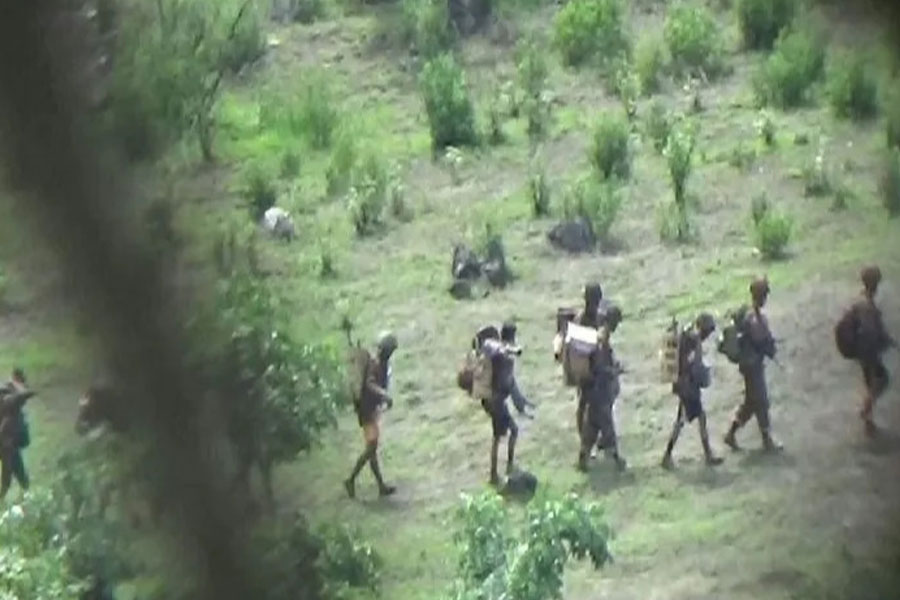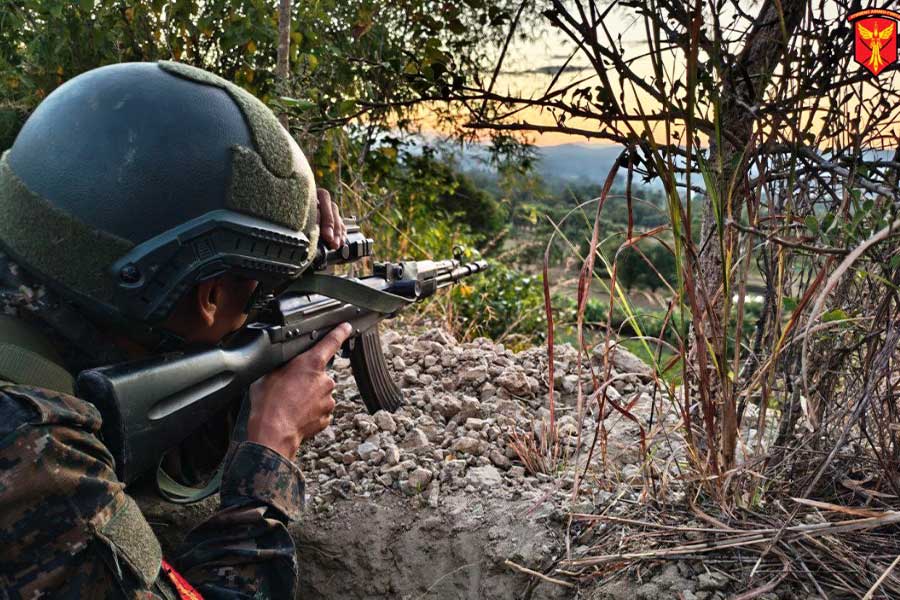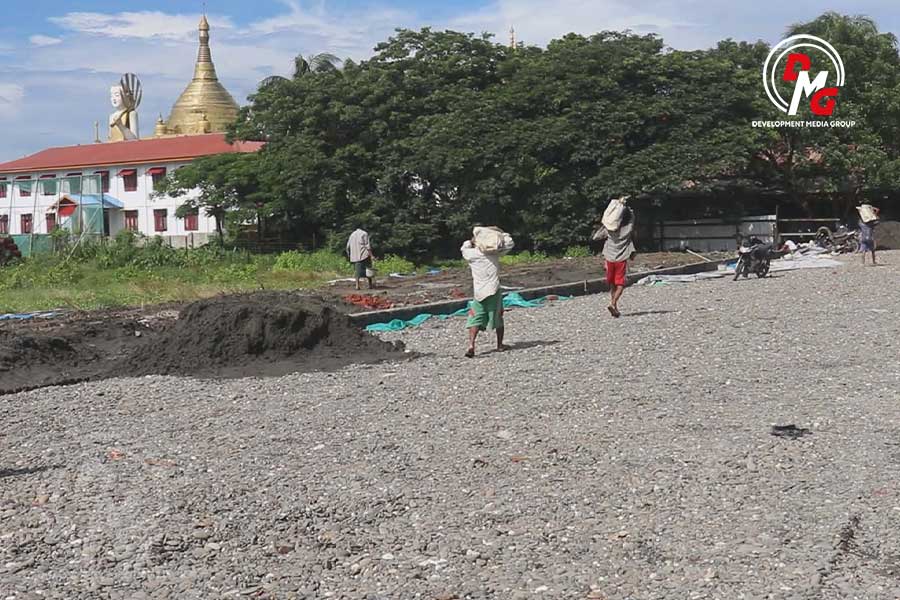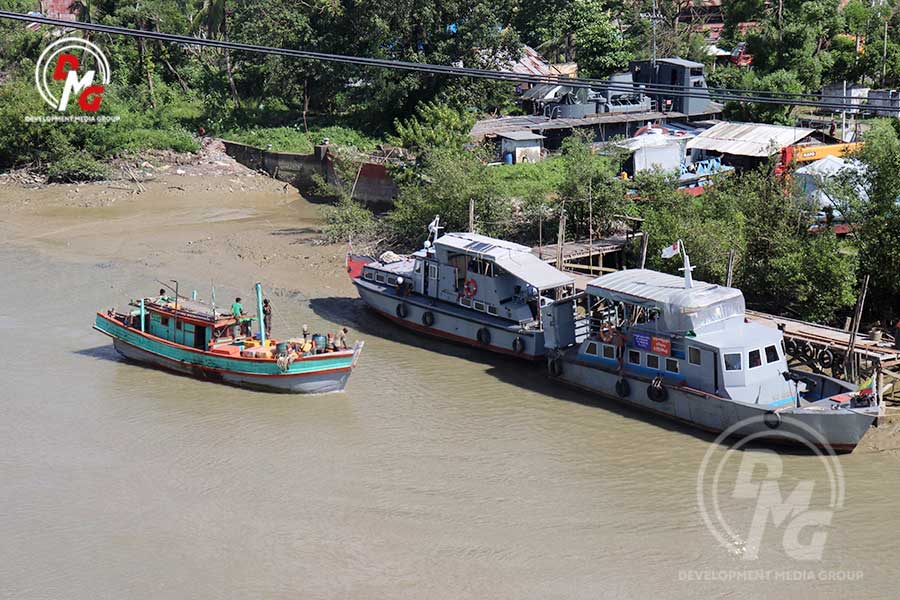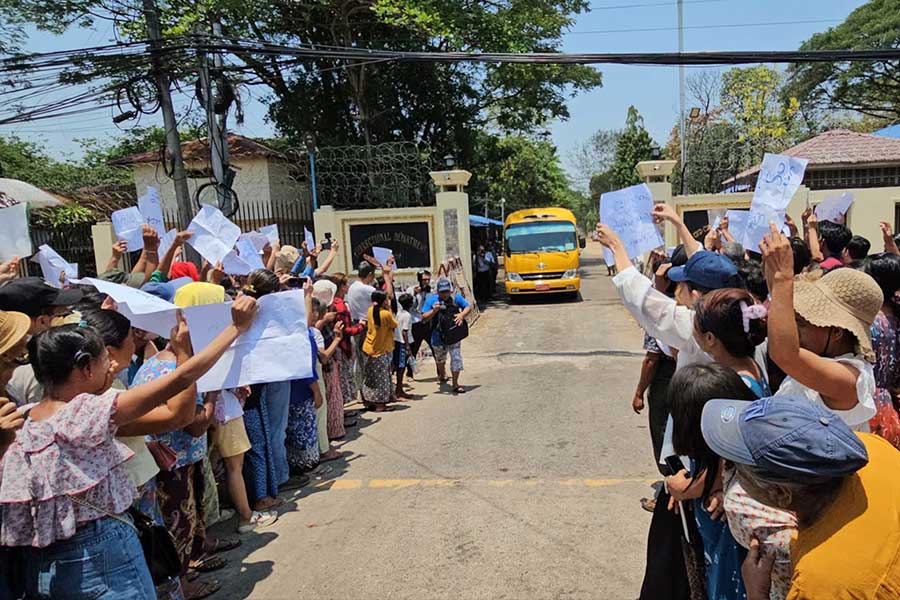- Junta launches major offensive to retake strategic Mawchi mining town
- Extreme poverty drives Sittwe residents to dismantle abandoned houses for income
- Weekly Highlights from Arakan (Feb 23 to March 1, 2026)
- Over 300 political prisoners freed from 10 prisons nationwide
- DMG Editorial: Between War and Opportunity - A New Border Reality for Bangladesh and Arakan
Political analysts assess border relations in view of AA’s ascendancy
The Arakkha Army (AA) has seized control of Paletwa Township in Chin State and 11 towns and/or townships in Arakan State, including territories bordering on and part of the strategically important crossroads of Bangladesh, India and Myanmar.
07 Sep 2024
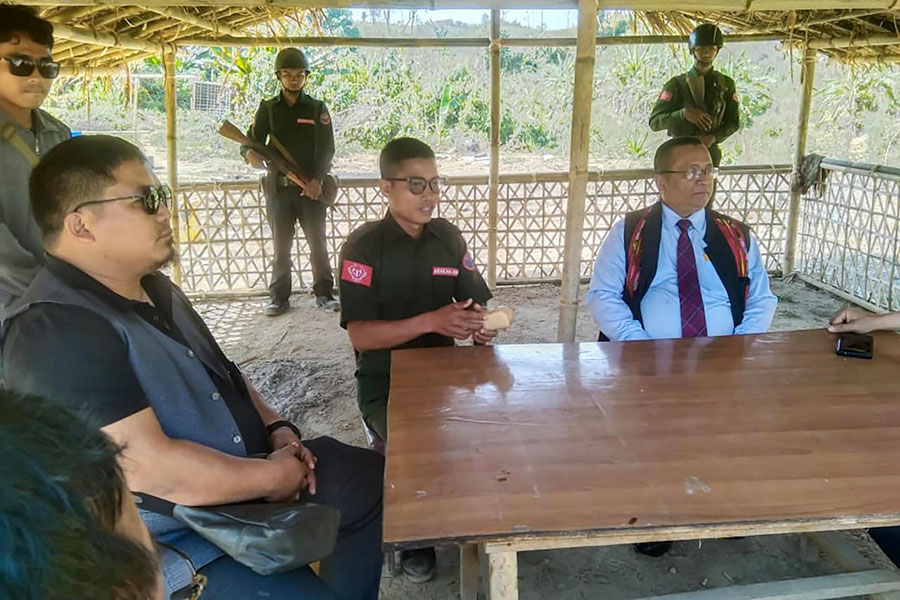
DMG Newsroom
7 September 2024, Sittwe
The Arakkha Army (AA) has seized control of Paletwa Township in Chin State and 11 towns and/or townships in Arakan State, including territories bordering on and part of the strategically important crossroads of Bangladesh, India and Myanmar.
As much of the border region from Chin State’s Paletwa Township to Maungdaw in Arakan State has come under AA control, officials from neighbouring countries Bangladesh and India said they should treat the AA as a friend.
On September 3, an adviser at the Bangladesh Ministry of Foreign Affairs said that he would contact the AA regarding the repatriation of Muslim refugees in the South Asian country.
India’s Mizoram state chief minister, Pu Lalduhoma, has called for developing friendship between ethnic Chin and Arakanese communities, saying that Chin people should make friends with the AA rather than fighting it, according to Chin news agencies. Pu said so as he met Chin communities on September 4 in the US state of Indiana.
Some Myanmar political analysts say the neighbouring countries bordering Arakan State are seeing the AA’s military successes on the ground and increasingly view it as an organisation capable of and necessary to solving border issues.
“In the current situation, because the AA has taken over all the military bases on the border and established an administrative apparatus, the neighbouring countries have come to know that they must deal with the ethnic armed group, both economically and in terms of border security,” said U Pe Than, a political analyst in Arakan State.
U Pe Than continued that India and Bangladesh will have to consider the relationships they want to establish for themselves vis-a-vis the AA, and that the ethnic armed group’s role in foreign relations looks only likely to increase.
“When the Myanmar military no longer exists in Arakan State, the AA’s role becomes more prominent. Whether it is building a country or an independent state, I see that border trade and relations with other countries will become very important,” he explained.
U Than Soe Naing, another political analyst, pointed out that the AA still needs to put forward an interim government in some form in order to deal directly with the international community.
“The international community has been talking about dealing with the AA because of its interests and investments in Arakan State. The AA still needs to take a step to build an interim government. The AA still needs to capture at least Sittwe to create an interim government,” he added.
U Than Soe Naing said statements made by neighbouring countries in connection with the AA are still at the “information inquiry stage,” and that he believes the ethnic armed group will take steps to establish official relations and attempt to advance its causes on a more firm footing thereafter.
The AA has announced that it has its sights set on control of the entirety of Arakan State, and is willing to engage in armed hostilities to make the state a junta-free zone. International conflict monitoring organisations have predicted that it may attain that goal in the not-too-distant future.
In a report late last month, the International Crisis Group (ICG) suggested that the Bangladesh government should engage with the AA in order to maintain peace and stability in the border region and find ways to provide comprehensive humanitarian assistance throughout Arakan State.
The ICG recommended that international aid organisations should work with the AA to address the challenges of Arakan State’s humanitarian needs.




